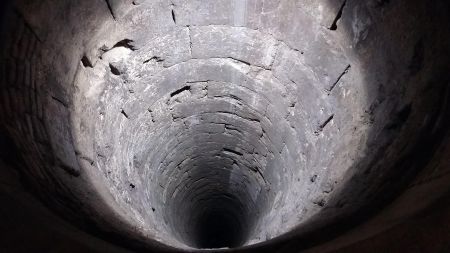Groundwater Well Types: Understanding Pros, Cons & Choices

If you need to have a well installed, there are a number of different types to choose from. Choosing the well that is best for your home or construction project is very important. Below are details on common well types.
Understanding Groundwater Wells: An Overview
Groundwater wells are essential for accessing underground water sources. They vary in design, each suited to different geological and environmental conditions. This guide provides insights into various well types and their suitability for specific needs. Understanding these differences is crucial for making informed decisions about well installation.
Pros and Cons of Bored Wells
Bored wells are ideal for shallow water tables and offer a cost-effective solution. They are easier to construct, but are more susceptible to contamination and drying up. Regular maintenance and proper sealing are crucial for their longevity. These wells suit areas with consistent groundwater levels.
Advantages and Disadvantages of Dug Wells
Dug wells are one of the oldest methods for accessing groundwater. They are best for areas with high water tables and are relatively inexpensive. However, their shallow nature makes them prone to contamination and seasonal variations in water availability. Careful location selection and construction can mitigate some risks.
Driven Wells: What You Need to Know
Driven wells penetrate deeper than bored or dug wells, accessing cleaner water sources. They are more durable and less prone to contamination. The installation process can be more complex and costly, but the long-term benefits often outweigh these initial investments. These wells are suitable for regions with deeper water tables.
Drilled Wells: Deep Dive into Benefits and Limitations
Drilled wells can reach the deepest water sources, providing the most reliable water supply. They require professional equipment and expertise, making them the most expensive option. Their depth offers protection from surface contamination and seasonal fluctuations. These wells are ideal for diverse geological conditions.
Choosing the Right Groundwater Well for Your Home
Selecting the right well depends on your location, water needs, and budget. Understanding the pros and cons of each well type is crucial for a sustainable water solution. Consult with experts to assess local geological conditions and water availability. A well-chosen groundwater system ensures a reliable and safe water supply.
Groundwater Well Safety and Maintenance Tips
Regular maintenance is key to the longevity and safety of groundwater wells. Ensure periodic testing for water quality, especially after heavy rains or flooding. Keep the area around the well clear of contaminants and regularly inspect well components. Proactive care helps prevent common issues and prolongs the well's life.
Get Expert Guidance Today!
Choosing the right groundwater well is a significant decision that impacts your water quality and availability. Don't navigate this choice alone. Our team at Guardian Well & Septic is ready to assist you with professional advice, tailored solutions, and top-notch installation services. Whether you're considering a new well or need advice on existing systems, we're here to help.
Schedule Your Well or Septic Inspection Today!
Contact us today to schedule a consultation. We'll assess your specific needs, discuss the most suitable well options for your property, and provide you with a comprehensive plan. Ensure a safe, reliable water source for your home or business with Guardian Well & Septic.
📞 (262) 518-2900
🔗 [Schedule Inspection]
